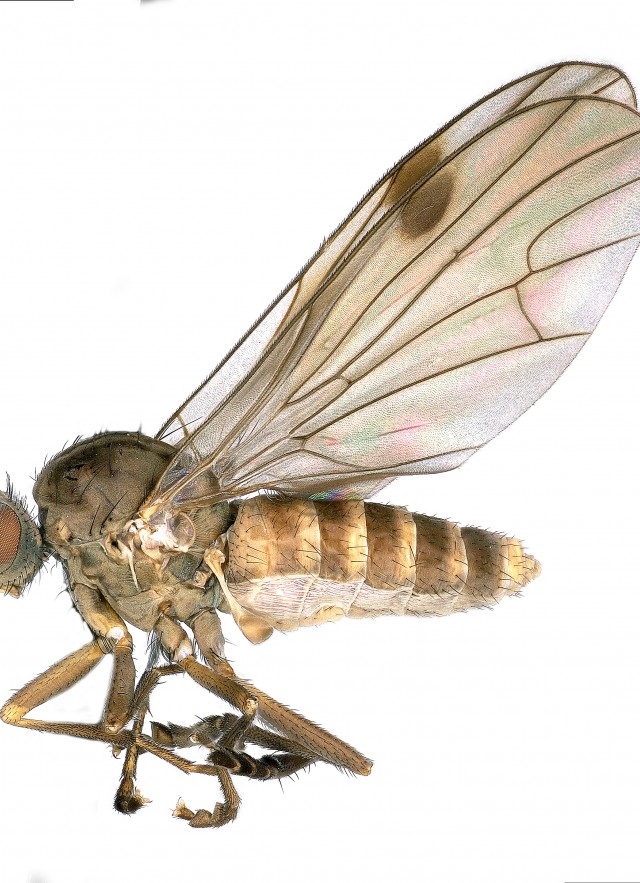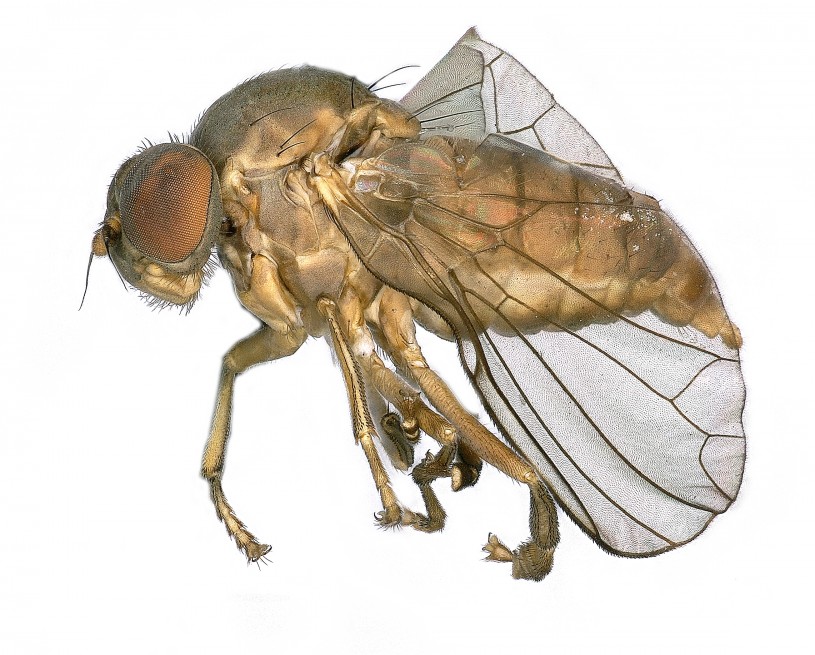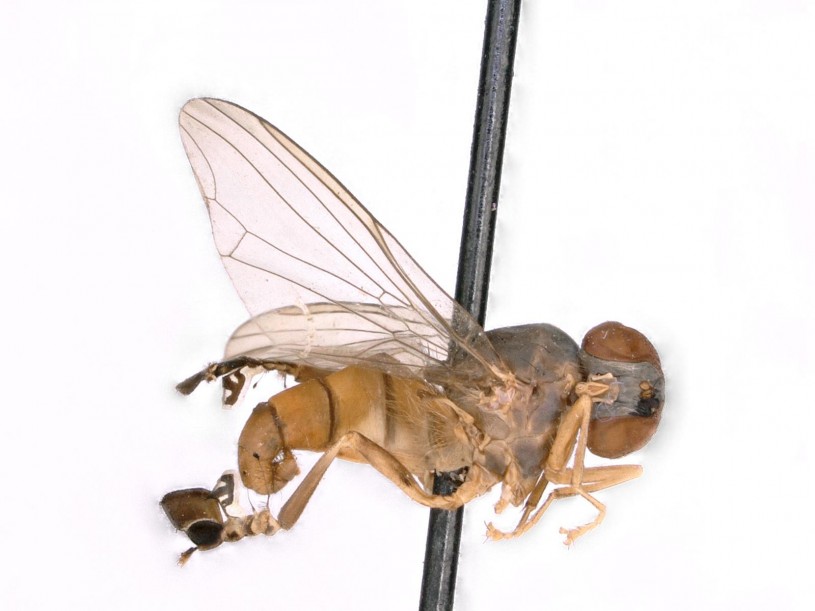The Hart Museum remains closed. Los Angeles County has approved a plan to transfer the William S. Hart Museum and Park from the County to the City of Santa Clarita.

Few might suspect that Los Angeles, a city of millions of people, is a hotbed of the dowdy-sounding “flat-footed flies” in the family Platypezidae. Compared to eastern Northern America, where these flies are relatively rarely encountered, backyards in L.A. have at least 3 species of these strange flies. In the past few months alone, individuals in the species Grossoseta sp. (shown above) and Protoclythia californica (shown below) have been collected from the Museum’s Nature Garden and a backyard site. The flat-footed flies were given this odd moniker from the flattened hind tarsi, the segments that make up the “foot” on the hind legs, in most females and some males. It has been suggested that the flattened segments for flies in this group may be an adaptation for spreading the spores of host-specific mushrooms, as females will insert eggs into the gills or pores of living mushrooms where the larvae will feed.

Extraordinary examples of this can be seen in the males within the genus Calostarsa, which have elaborately ornamented projections on their hind legs that males presumably use to flag down female flies. Male flat-footed flies form large aerial mating swarms and will "dance" with their legs held down, displaying their tarsal accoutrements. In another genus, Microsania, males are attracted to smoke plumes where the swarm will congregate, a behavior that is a mystery to entomologists, proving that there is still much to be learned about these intriguing flies.

References: Kessel, E.L. (1963) The genus Calotarsa, with special reference to C. insignis Aldrich (Diptera: Platypezidae). Occasional Papers of the California Academy of Sciences 39: 1–24. http://www.biodiversitylibrary.org/page/3158714